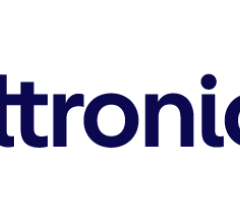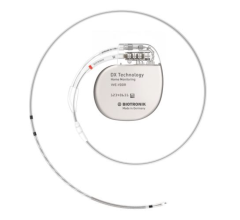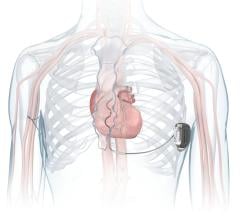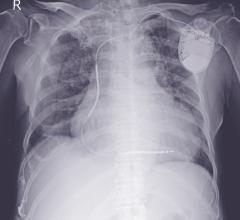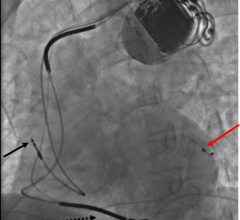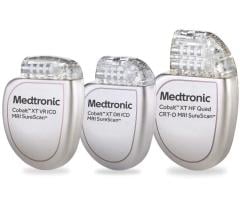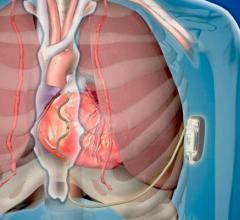December 5, 2014 — Most patients with implantable cardioverter defibrillators (ICDs) haven’t thought about device deactivation if they were to develop a serious illness from which they were not expected to recover. But given changes in healthcare, there may be a new reason to do so. A new study led by researchers in the Perelman School of Medicine at the University of Pennsylvania, which was presented at the 2014 Scientific Sessions of the American Heart Association, investigated patient perspectives on deactivation of these devices at the end of life, especially related to decisions to deactivate devices against patient or family wishes.
“During a time of scrutiny about life-prolonging efforts that may be seen as too costly or medically futile, end-of-life planning is an important topic for patients with ICDs to address with their doctors and family,” said senior study author James N. Kirkpatrick, M.D., assistant professor in the division of cardiovascular medicine and department of medical ethics and health policy at Penn. “This study provides important insight into patient perspectives around the controversial concept of clinicians deactivating these devices against patient and family wishes. It has been argued that decisions not to perform CPR on patients, even if they want it, is ethically justified in cases of medical futility. If an ICD is a form of resuscitation, it could be argued that defibrillators can be deactivated under similar circumstances.”
The study’s researchers interviewed 60 patients with ICDs or cardiac resynchronization therapy ICDs (CRT-Ds) at the outpatient electrophysiology practice at the Hospital of the University of Pennsylvania between summer 2012 and summer 2013. The survey questions addressed: the inclusion of ICD deactivation in advanced directives; whether ICD deactivation is physician-assisted suicide; and whether unilateral ICD deactivation can be ethically justified.
According to the study’s results, only 15 percent of patients had thought about device deactivation if they were to develop a terminal illness. A small majority of patients (53 percent) had advanced directives, but only one mentioned what to do with the device at the end of life. In addition, only 3 percent of patients had discussed device management with their clinicians. However, the majority of patients did not believe that device deactivation in accordance with patient wishes was physician-assisted suicide (78 percent), but did believe that it was not ethical/moral for doctors to deactivate ICDs against patients’ wishes (78 percent).
For more information: www.med.upenn.edu


 January 13, 2026
January 13, 2026 

